“Santa Marta’s a bit of a shithole.”
You’ll just have to imagine that sentence spoken in an Australian accent.
I heard this statement or a variation of it no less than three times in Cartagena before I booked my hostel and transportation to the city of Santa Marta.

But yeah, of course I still went. And while most of my newfound friends booked a hostel outside of Santa Marta’s historic city center and closer to nature, I was in town for more than just the amazing Tayrona National Park. Almost defiantly, I wanted to see Colombia’s oldest city and I wanted to be located within walking distance to the local food as well as the dive shop I planned to use to get my PADI Open Water certification.
Both of these things turned out to be Santa Marta’s redeeming qualities.



And let’s not forget that it’s a port city with a not so bad looking waterfront and harbor.



The Negative
Santa Marta is NOT the nicest city in the world, especially when you’ve just arrived from the pristine and incredibly colorful Cartagena. It smells a bit. A lot more of the buildings are crumbling or in disrepair. And the streets basically flood every afternoon when the short but heavy rains roll in this time of year.
I also arrived in low season, so there were fewer tourists and less infrastructure catering to tourists. Visitors come to Santa Marta to scuba dive, see Tayrona, or as a jumping off point for the nearby fishing village turned backpacker hotspot, Taganga. It’s just not the most beautiful city, okay?


Parque de los Novis isn’t ugly though


And yes, there is some crime here that you need to be aware of. Two travelers I met told me that they’d been robbed at knifepoint in the street. (Yes mom, I purposefully avoided telling you this until I’d left the city.) Neither of them was hurt and neither of them lost much in the way of material possessions. However, what makes it a bit scarier was that neither of them was alone; they just got singled out by the guy with the knife. And one of these robberies happened at 6:00 in the evening.
It gets dark early in Colombia, like around 6:00 PM, so if I was headed out for dinner I’d usually stick to the area around my hostel if I was alone. Sometimes I just carried a few pesos on me, because really truly, I don’t want to lose my debit card or cell phone.





While lots of travelers stay in nearby Taganga for the backpacker scene, I’m really glad I chose to stay in the historic center of Santa Marta in spite of all this. After visiting Taganga for a few dives, I can honestly say it is no nicer than Santa Marta (and um, it smells worse). Plus, there’s crime there as well. From a friend and even recent TripAdvisor forums, there appear to be gangs of men who rob tourists should they stumble down the wrong path.

Taganga does have some great nature surrounding it though

The Positive
Santa Marta has a ton of cheap food options! I thought there was a lot of street food in Cartagena, but this city gives it some definite competition. From the moment I rolled into the city, I saw chorizo being grilled all over the town and knew I had to try it. Diarrhea be damned! These greasy sausages are everywhere, not to mention a huge variety of chuzos, which are like the Colombian version of kabobs: a multitude of street meat, potatoes, and vegetables on sticks.


A huge concentration of street food right outside the Éxito



You’ll find a few food options along Santa Marta’s waterfront as well.

I was able to keep my daily costs down by buying these delicious treats for about $2,000 COP a piece ($0.68 USD). After I’d tried a few chuzos with chicken, beef, sausage, and hotdogs with no adverse repercussions, I manned up and got the chorizo for dinner. To my surprise, the young guy manning the stall threw it on the grill for me, sliced it up, asked if I wanted it served with papitas (little potatoes) or yuca, and then piled it all in a styrofoam container, squeezed fresh lime juice over it, and topped it with ketchup and salsa rosada.

Oh my god, SO good! (Yes, I really love chorizo.) All for 68 cents! And in this way, I could eat for less than $5 a day. And occasionally I did. Of course, for good measure I frequently threw in some arepas, and a few doughnuts or croissants filled with arequipe, this area’s version of dulce de leche.


Tamarind balls – the one thing here I absolutely did not like. You can see why I bought one though…
Another thing that Santa Marta has a ton of? Menús del día. For a set price at lunchtime, you can get fresh juice, soup, and an entree that’s usually served with rice and a salad. Sometimes you even get dessert. I had three of these in Santa Marta, ranging from COP $9,000 to $15,000 ($3.05 USD to $5.08 USD). You have a menú del día at lunch and eat street food for dinner, and your budget is golden!

Lots of folks around here really wanted their picture taken!


Santa Marta also has several trendy restaurants with spins on traditional Colombian food and healthy-ish food joints with huge selections of smoothies and juices.
At the bottom of this post, I’ll leave my recommendations for all of the above.
Scuba diving, especially in Colombia, is all it’s cracked up to be! I totally get all the hype now, you guys! Scuba diving is absolutely incredible. It’s both relaxing and physically and visually amazing at the same time.

I knew I wanted to get my PADI Open Water certification in Colombia. It’s about $100 cheaper than getting certified in North Carolina and the conditions of the diving are exponentially greater. As in, you don’t have to dive for the first time in a lake or rock quarry. The tropical water here is warm and clear, and the Caribbean offers tons of reefs and wildlife, especially around the protected islands of Tayrona.



After doing my research and deciding that I was going to stay in Santa Marta instead of Taganga, I pinpointed the dive shop I wanted to use. And I can wholeheartedly recommend the guys at Santa Marta Dive and Adventure. They were so friendly and professional. Carlos, the dive instructor, always reminded me to stay relaxed and remember to do everything slowly and correctly. And he kept some humor in the equation. Leo, the owner, was very sweet and only wanted me to be happy and enjoy my time diving and learning.

Of course, this is the one photo I have of Carlos…

Well, I guess I have this one too!


The first day consisted of watching all of the instructional DVDs, practicing the diving exercises in a nearby pool, and taking all of the PADI quizzes and exams. It was a long day, lasting from 7:30 AM until almost 5:30 PM, and I’m not gonna lie, those exercises in the pool weren’t all easy. Swimming underwater without a mask while breathing only through your mouth is such a weird and not lovely experience.
It was interesting and a little bizarre to be back in a sort of classroom setting again, learning about water pressure, decompression sickness, and the Scuba equipment, as well as learning to read a dive chart. But being a bit of a nerd lifelong learner (you know, those seven years of higher education), I kind of enjoyed it.

Taganga’s waterfront




And it was so worth it to get all this information and practice out of the way on the first day of the course, so that the next two days could be all about diving in the actual open sea. Even if I was a little bit nervous for that.
Leo and Carlos arranged everything though, including transportation from Santa Marta to Taganga (I went by motorbike with Leo on the last day – a big surprise for me, but pretty exciting nonetheless!), all the gear I needed, and light lunches between dives. We met at Octopus Dive Center in Taganga and shared a boat with them when we headed out to the dive sites.




I practiced setting up all my gear – tanks, BCD, regulator, etc. – by myself. That’s something that looked so complicated before but that now I actually understand. I was really proud of myself for learning how to do it. Not to mention learning how to use an underwater compass, which is now a random skill that I’ve acquired.


Each day we had two dives, during which I completed the remainder of the required PADI exercises for the course. But for the most part, they were just enjoyable, beautiful dives. We saw tiny delicate crabs, spotted moray eels, scorpion fish, a lobster, several squid (which look crazy amazing underwater), sea urchins, and just tons and tons of colorful fish all around the coral. It was better than I could have imagined.
And now I want to dive everywhere!


Took me a long time to learn to use the “okay” signal instead of giving a thumbs up // Post-dive PADI license selfie
So, if you even think you MIGHT like diving, DO IT! And I’d like to personally throw out there that Colombia is a great and affordable spot to get certified! Especially with Leo and Carlos.
In short there’s no need to avoid Santa Marta. No, it’s not the most impressive of cities, but just know what you’re getting into and enjoy it for what it’s worth. And have some chorizo for me!
Where I Ate in Santa Marta: Tons of street food stalls set up before lunchtime grilling meats (chuzos and chorizo) around the Éxito at Calle 19 and Carrera 5. If you continue walking up and down Carrera 5 and its side streets, you’ll find tons more street food, from arepas, to hotdogs and pizza cooked right there. I also really liked the bakery at the corner of Carrera 5 and Calle 22. There are both sweet and savory pastries and breads.
For a good, cheap menú del día, check out Restaurante Cocinando (Italian food with the nicest chef and great patio seating) and Caribbean Wings (basic Colombian food and they have a great chicken soup), both on Calle 17. For a little more upscale place with cheap prices and wifi, check out Arte Gourmet on Calle 19 near Parque de los Novios.
A little more expensive, but trendy and delicious: Carambolo for pitas and smoothies on Calle 19 and Lulo for juices, fancy arepas (I had one topped with shrimp and mango ceviche), and live music and a fantastic happy hour at night (get the maracuya mojito!) located on Carrera 3 between Calle 16 and 17.
Where I stayed: La Villana Hostel on Calle 17 in the historic city center. Great hostel with small pool in the courtyard, bar, beanbags in the TV area, and best of all, outlets and reading lights on every bed. Bring bug spray and apply regularly because there are mosquitoes in the courtyard. The wifi is a little hit or miss, but overall I enjoyed my four nights here.





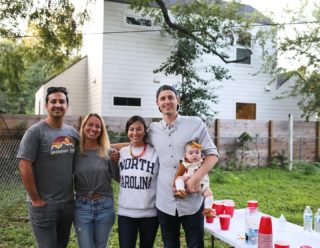

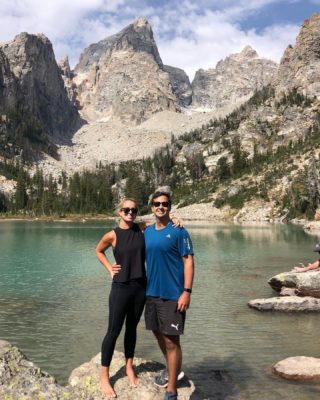
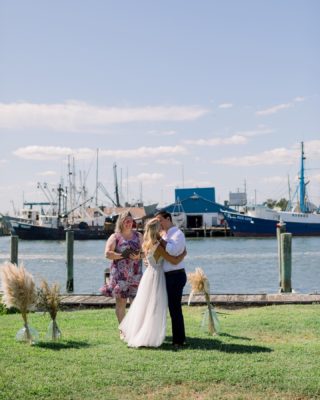
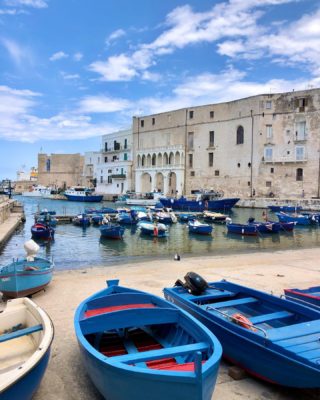
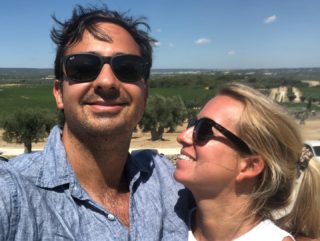

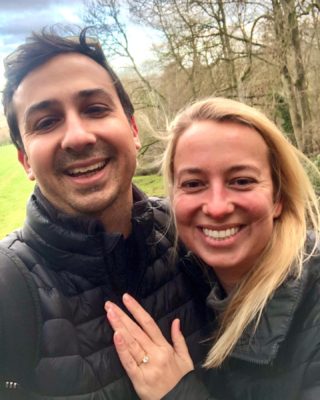
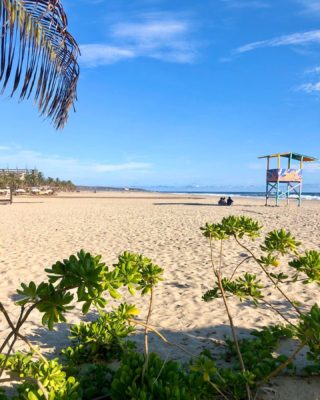
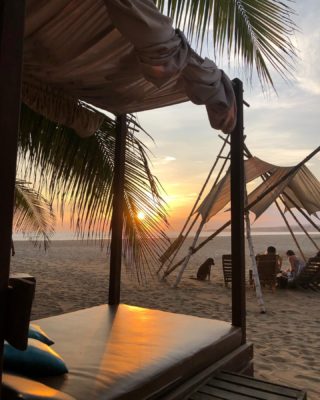

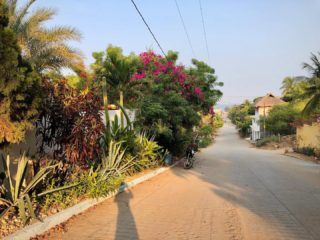


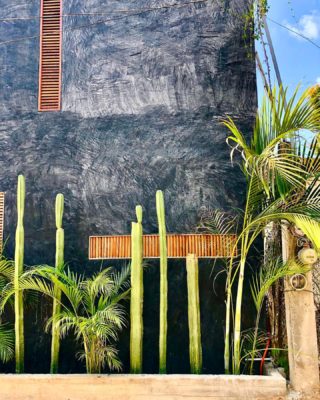
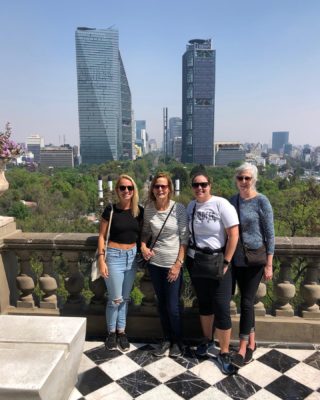
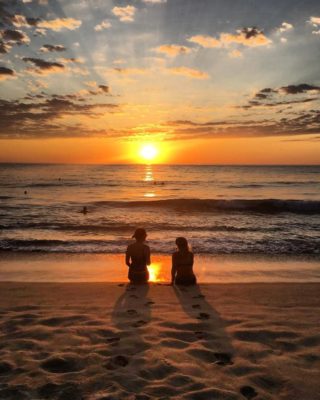
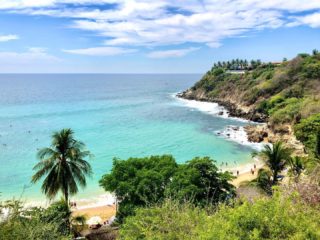
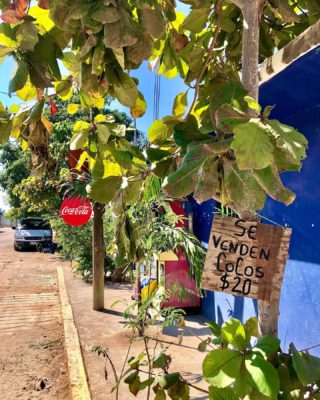
Such stunning place i was there as well one month ago and was badass and wonderful unique experience. Everything what you described in your article is an experience that every scuba tourist have to take once in their life.
Ahh, I loved the diving in the Caribbean! When I did my advanced course in Koh Tao, I didn’t want to tell everybody how much more colorful and clear the diving was in Colombia!
[…] Marta, I heard, is a “bit of a shithole”; a big, uninspiring, pretty dirty city. But according to the internet, Taganga, a small, […]
Try Rodadeiro which is part of Santa Marta but a 15 minute drive from the downrown area. I was there in late Dec 2016. Nice beach and where Colombians go to vacation. The sea food restaurants and street food were great. Ceviche huts were amazing and the vibe was wonderful. I didn’t dig taganga at all and was only quickly passing through downtown quickly. I hired a cab for the day which was $80 and tried to enter Tayrona but the line was really long and I am very impatient. I hear there is a hostel near the park entrance where you can sneek in. Overall, i love Colombia. Nicest people in South America. Great blog!
Hey Rachel
Great Blog anndd soo helpful, I’m heading to Colombia in a week and only now realized what a great opportunity it would be to get scuba certification. How many days did you spend getting your PADI Open Water certification and how much did it cost?>
thanks!
Open Water in Santa Marta was only $200 USD (the cheapest I’ve seen it anywhere) and it took 3 days. The first in the pool and then two days of diving. Have a great trip!
Santa Marta. Such a great place to write about. Yes, you have to visit to understand and enjoy the local culture. Great pictures.
Sharon recently posted…Citizen Eco-Drive Men’s BN0151-09L Promaster Diver’s Watch Review
Thanks, Sharon! Yes, I totally agree. It’s way better when you get involved with the local culture (and food).